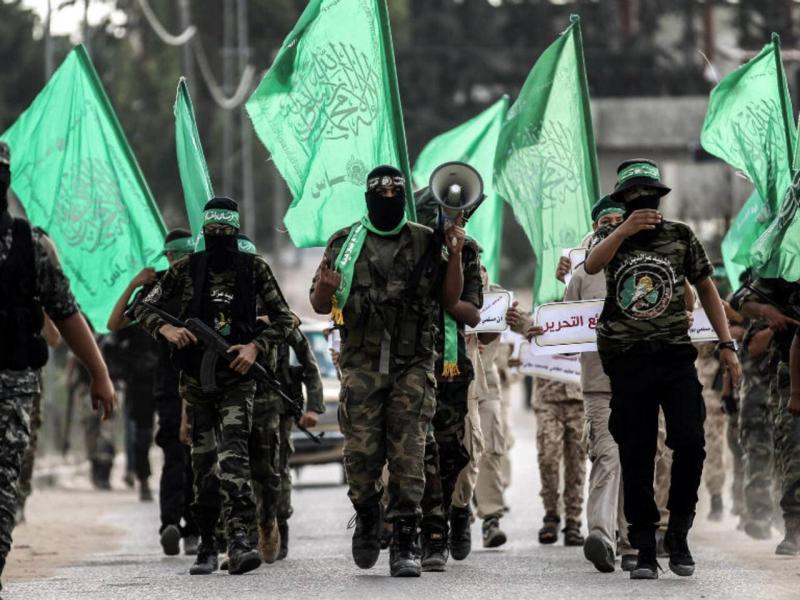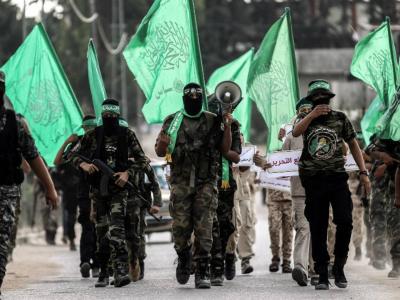With the beginning of 2024, the confrontation between Iran and Israel has taken a different path compared to the rules of engagement that governed their relationship over the past decade, especially in light of Iran's increasing influence and presence in Syrian territory under the guise of military advisors to assist the regime in dealing with the internal war that erupted in the spring of 2011. The Iranian regime does not deny but rather openly states the strategic importance of Syrian geography in its regional project, arguing that Damascus serves as the "bridgehead" toward the Palestinian borders with Israel, which Tehran and its regime view as possessing a rival regional project. Consequently, the presence in Syrian geography is considered the first and fundamental line of defense for Tehran's project and its regional influence, as well as for the defense of the regime and its stability.
What Hamas executed in its attack on the Gaza Envelope settlements on October 7, 2023, compelled Israeli leadership to escalate the confrontation with the Iranian regime, which they hold accountable—both materially and morally—for the Hamas operation. This necessitated a qualitative shift in this confrontation, opening it up to targeted operations and painful assassinations that would contribute to Israel’s goal of dismantling and striking at the Iranian leadership responsible for the happenings at its northern borders with Lebanon and its southern borders with Gaza.
The types of operations carried out by Israel and the assassinations on Syrian territory over the past two months clearly indicate that Tel Aviv closely monitors the military composition and decision-making keys within the hierarchy concerning the Iran-led axis regionally. The targeting by Washington at the beginning of 2020 of Quds Force commander Qassem Soleimani must therefore be continued through targeting the team overseeing the continuity of Iranian activities and the planning executed with allied or loyal forces to Iran, specifically Lebanese Hezbollah and Palestinian factions.
The operation targeting senior logistics officer in the Quds Force, General Rida al-Mousawi, served as a wake-up call for the Iranian apparatus and its allies, especially on Syrian soil. However, the subsequent operation that killed the security officer of the Quds Force in Syria and Iraq, "Haj Sadiq" Omidzadeh or Omidvar, and his assistant led the Iranian apparatus to adopt different security mechanisms upon realizing the extent of the breach and leaking of information. The presence of Iranian officers or Quds Force leaders in Syria and Lebanon within the Iranian consulate building, protected by international law, may be part of the new security measures implemented by this force to mitigate repeated Israeli targetings.
However, the magnitude of the challenge faced by Israel, the decline in its deterrence capability, and the criticisms it faces due to its actions in Gaza pushed Prime Minister Benjamin Netanyahu’s leadership to disregard all international considerations and to violate the established rules of engagement between him and the Iranian side. Targeting the Iranian consulate in Damascus, even if it did not result in human losses among the diplomats or those inside, places Iran in a position to defend its sovereignty which has clearly and directly been violated, in addition to the severe blow inflicted on its military and security institutions. This targeting places the role of the Quds Force in this strategic geography in real danger, compelling the Iranian regime to move away from the routine response it has relied upon in previous targetings, maintaining its right to respond at the appropriate time and place.
The necessity of an Iranian response has transformed into a matter of value and credibility for the regime and its deterrent power. Previous Israeli operations occurred in the host country and in security sites that did not have sovereign or diplomatic status, even if the target was a diplomat as in the case of the assassination of Qassem Soleimani and subsequently Rida al-Mousawi. In contrast, the assassination operations that took place inside Iran targeting nuclear program scientists, specifically Mohsen Fakhrizadeh, remained within the scope of an intelligence struggle and accusations.
The Iranian regime needs this response for reasons related to its credibility and seriousness in adhering to the slogans it raises, which reflect the ideological dimension of the groups that constitute the axis it leads in the region, especially in light of the extent of the losses sustained by the Gaza sector on one hand, and the confrontation led by Hezbollah in southern Lebanon, which has cost it significantly. Hezbollah carried the burden of the initial response to the assassination of al-Mousawi and Haj Sadiq, relieving Iran from responsibility for that. Therefore, the response from the ally will not be justified among the ally’s ranks or on the regional and international levels.
Iran's need to initiate a response, as the supreme leader mentioned, claiming that Iran will strike Israel making it regret its actions, along with subsequent statements from several state and regime officials, is linked to Iran's entire regional project. Silence about an assault on its sovereignty may open the door for Israel and others to conduct open targeting operations within Iranian territory, taking advantage of the regime's lax stance.
Among the reasons compelling Tehran to respond directly is the credibility of the image it attempts to establish through its proposal for regional security and its ambition to lead this system as the greatest and most capable force for confrontation. Thus, it is compelled to defend its aspirations for regional leadership, at least within the area closest to it above the Gulf waters reaching the entrances to the Red Sea at Bab el-Mandeb.
There is no doubt that indirect communications between Tehran and Washington intensified in the hours following the targeting of the consulate in Damascus. Given both Iran and the U.S. are keen to avoid expanding the war into the region, this could push both parties towards understandings and settlements, allowing Iran to respond to this targeting without allowing it to evolve or permitting it to develop into a comprehensive war that could achieve what Netanyahu wishes by directly entangling Washington and Tehran.




